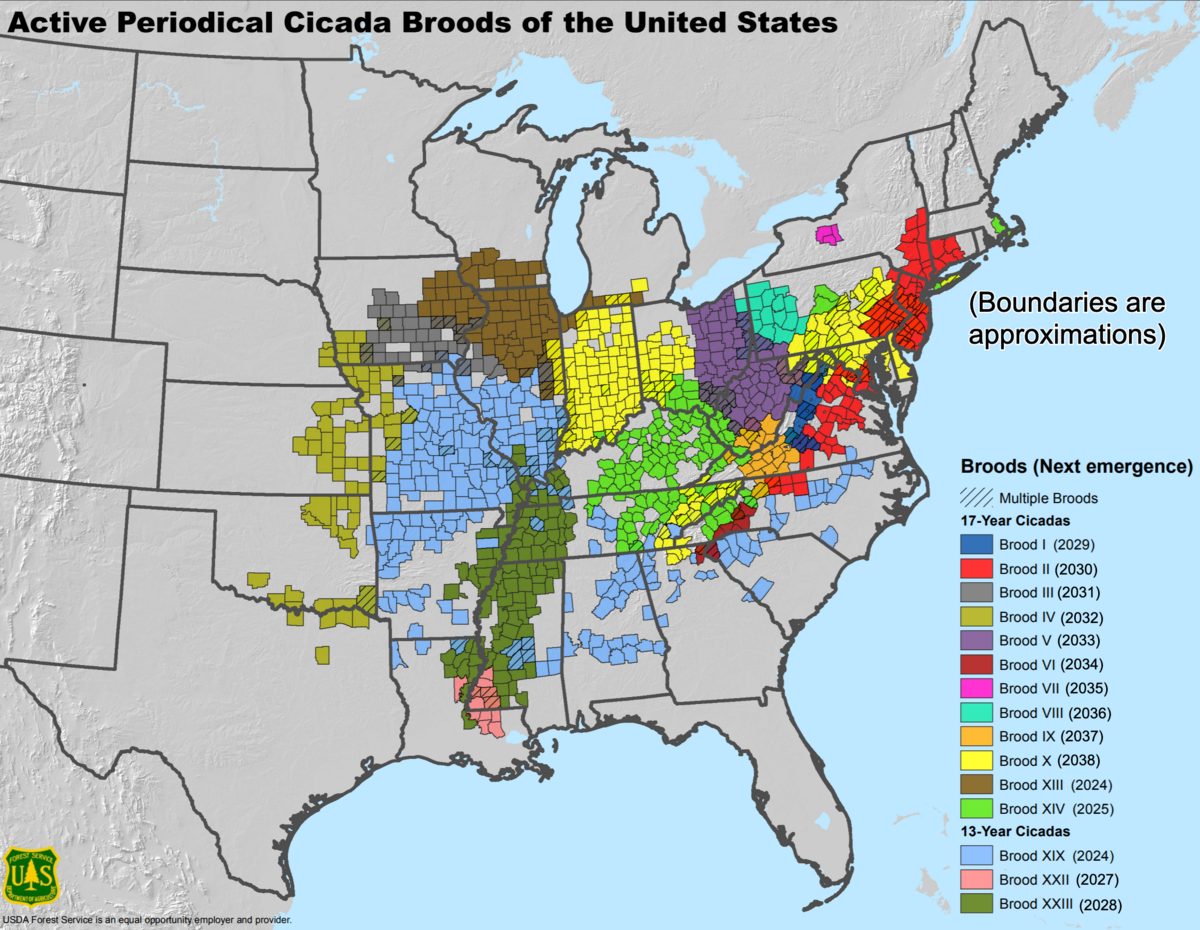As spring approaches in North Carolina, we can expect some extra noise this year. Starting in April, cicadas will make appearances around the United States. Seven different species are on track to emerge once the soil temperature reaches 64 degrees (8 inches below the surface). The sound that they make is actually a mating call made by the males for roughly four hours each day. The high-pitched buzz can reach up to 100 decibels which is the same volume as a motorcycle or jackhammer. Normally, three species come back every 17 years and the other four come back every 13 years, but this year, there is a crossover, which only occurs every 221 years. This means that the last time this happened, it was 1803, and the President of the U.S. was Thomas Jefferson.
While this species is not harmful to humans, they do cause damage to trees. When a female lays their eggs in a tree, it makes slits in the branches that weaken them and later cause them to snap. To protect your trees, you can cover them with mesh or wrap the branches with cheesecloth, but pesticides will not kill the cicadas. Another way to eliminate them is to hold a plastic water bottle against them and wait for the bugs to go in. Due to climate change, what once was an event that occurred in May is now one that will happen as early as April.
Cicadas are roughly 1-2 inches long and they use their forelegs to tunnel from underground to the surface. Since this year is a dual emergence, experts have predicted that this could mean up to a trillion cicadas over roughly 16 states. To put this into perspective, a line of all the cicadas would reach the moon and back over 30 times. Another effect of the dual emergence is the potential of a crossover brood and a new cycle. Cicadas’ life cycle is roughly six weeks, but all those weeks will be filled with buzzing, and once they die, their dead bodies will bring a foul smell. All things considered, cicadas are actually very important to deciduous ecosystems and this event is pretty cool. While the first wave will reach South Carolina, the second wave will hit North Carolina, so look out for those cicadas this spring!








